Dingle Business Course Brings Textbook Studies to Life
Blizzard: February 24, 2026
Classes before noon on Tuesday, February 24 will remain remote. Review our website for detailed instruction.
The two-week intensive program provides students with a unique global perspective
If you ask Adjunct Instructor Gerry McCloghry why he chose Dingle, Ireland, as the site of his international immersive business economics course, he’ll say – location, location, location.
For this economics expert, there’s no better place to understand vital business concepts – free trade, competition, monopoly – than Dingle. With its stunning coastline, magnificent ruins and reverence for the ancient Gaelic language, Dingle was once described as “the most beautiful place on Earth” by National Geographic. Add to that a bustling tourist trade that swells the year-round population from 2,000 to 20,000 in the fair summer months, and the tiny town becomes a microcosm of international business issues of the day.
“Being able to connect everything learned in both Microeconomics and Macroeconomics to real-life scenarios while seeing how these teachings can be applied internationally, created a broader but also more precise understanding of the topics learned within economics,” said Rowan Philpott ’24, a finance and marketing major who took the course in May 2022.
First offered in 2018, “Contemporary Issues in Economics: Ireland” is a two-week, intensive introduction to basic economic principles needed to analyze social issues, such as prices, incentives, market failure and economic growth. Students, who stay at SHU’s townhouse-style Glor na Habhann during their visit, attend guest lectures from Dingle-based bankers, realtors, shopkeepers and others, learning about the local economy by being a part of it, said McCloghry, who designed the place-based experience.
“It’s a very self-contained community and that’s why it lends itself ideally to this project,” he said.
Khawaja Mamun, associate professor of economics who has co-taught the course, said the students are expected to shop and investigate what it would be like to live, work and travel in Dingle, carefully recording their findings. One might compare the cost of basic groceries from store to store or see how each of the dozens of pubs in town – where drink prices are identical – manage to stand out from the pack and attract customers, for example.
“They’re out in the action of the town,” Mamun said.
With full weekdays of field research and lectures, the students also enjoy weekend trips to the windswept Blasket Islands and the market town of Killarney. The three-credit undergraduate course is one of many SHU in Dingle offerings. Business major students in the Welch College of Business & Technology can use their Welch Waiver to cover the cost of tuition.
At course’s end, students present an individual project as well as a group project on their findings about the consumer price index for Dingle. Students measured the inflation rate in Dingle to be 7.4% for last year compared to the official inflation rate of 5.0% for Ireland. The most recent group presented an additional “Day in Dingle” report, chronicling a typical tourist experience for a family of four.
The course was easily my favorite college experience thus far. This opportunity is not one to be taken for granted as it provided me with the chance to explore new places, meet new friends and allow my education to grow all at the same time. If I could take this course a million times I would!
Given Ireland’s recent challenges – a creeping inflation and a labor shortage, especially in the trades – the program provides students with an in-depth look at the pandemic’s effects on an economy and the realities of Irish and European Union regulations. Professors Mamun and McCloghry plan to present their experiences at a Washington, D.C. conference on international business pedagogy in October.
“It’s a very different experience,” McCloghry said. “The students are writing a textbook, in a sense.”
For more information on this or other programs on the Dingle campus, visit SHU in Dingle.
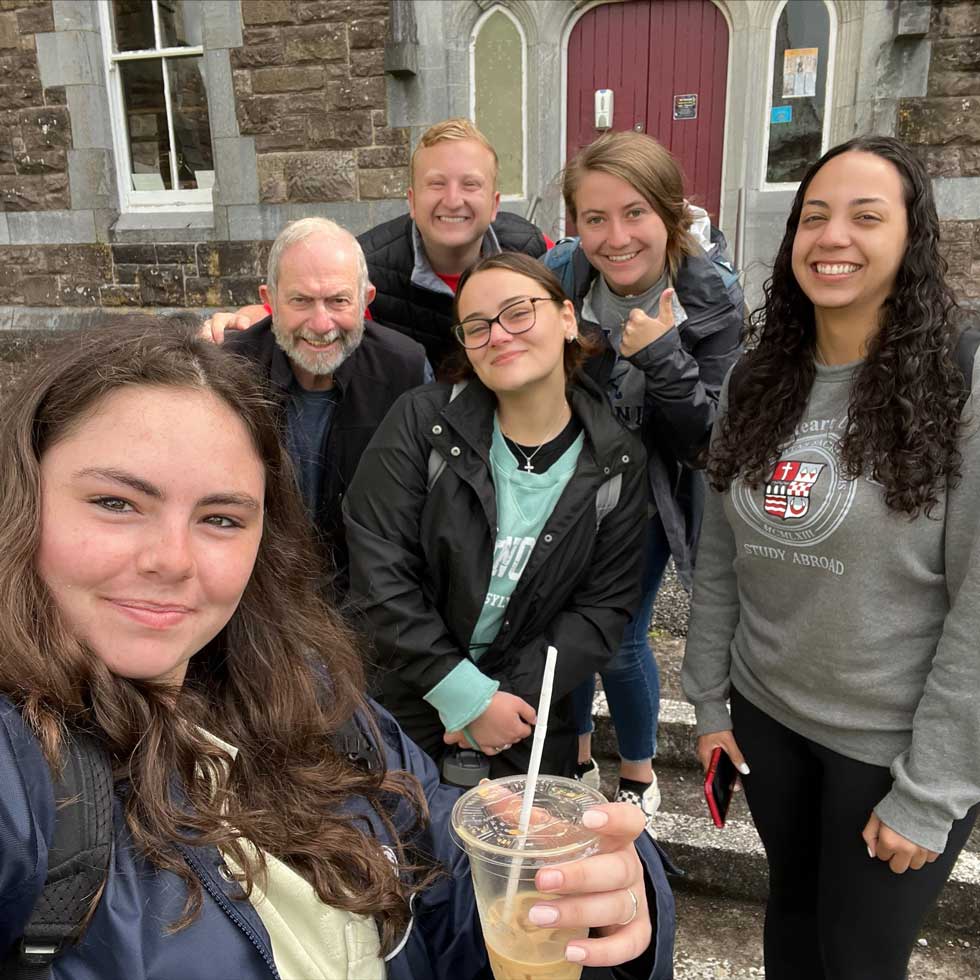
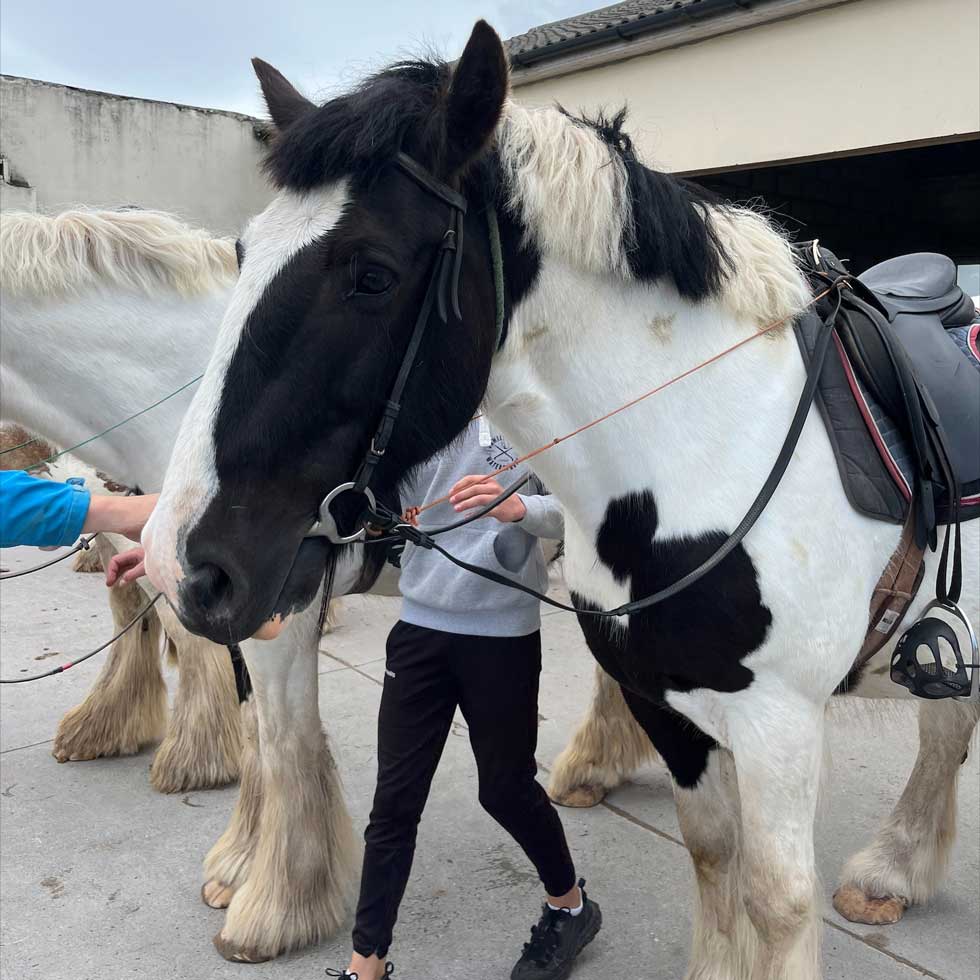
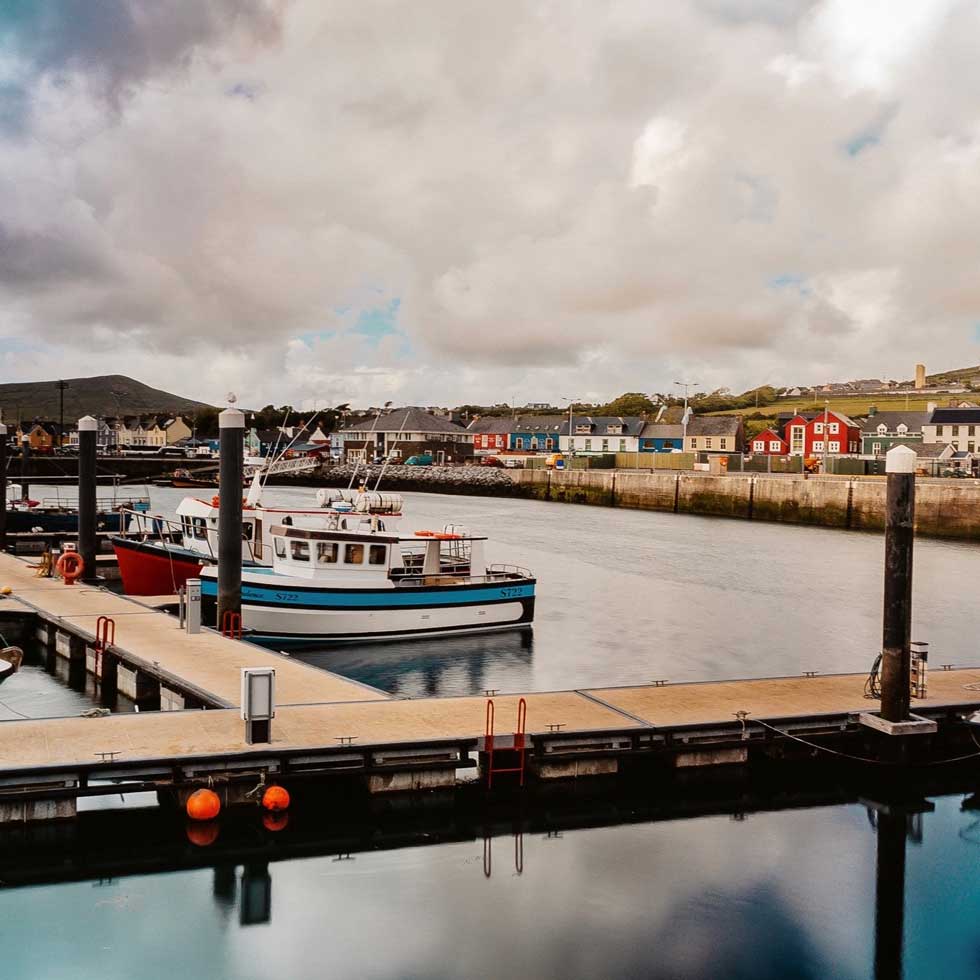
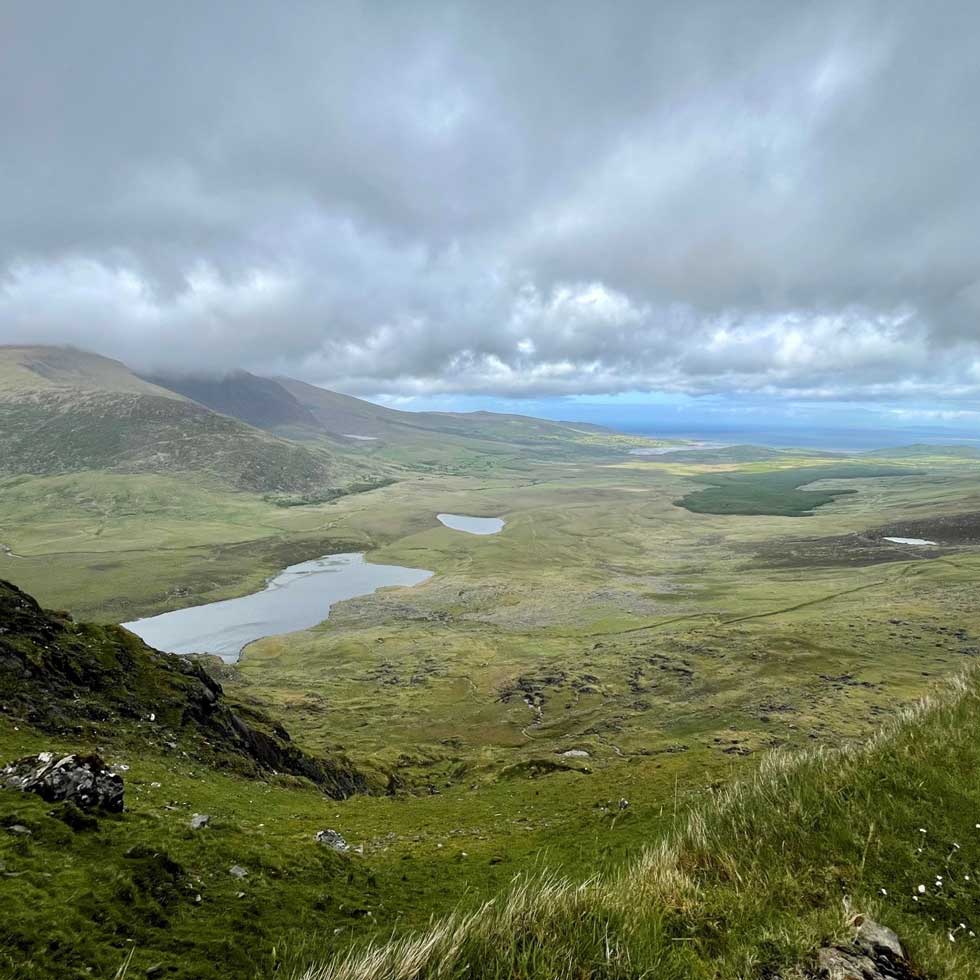
Dingle, Ireland
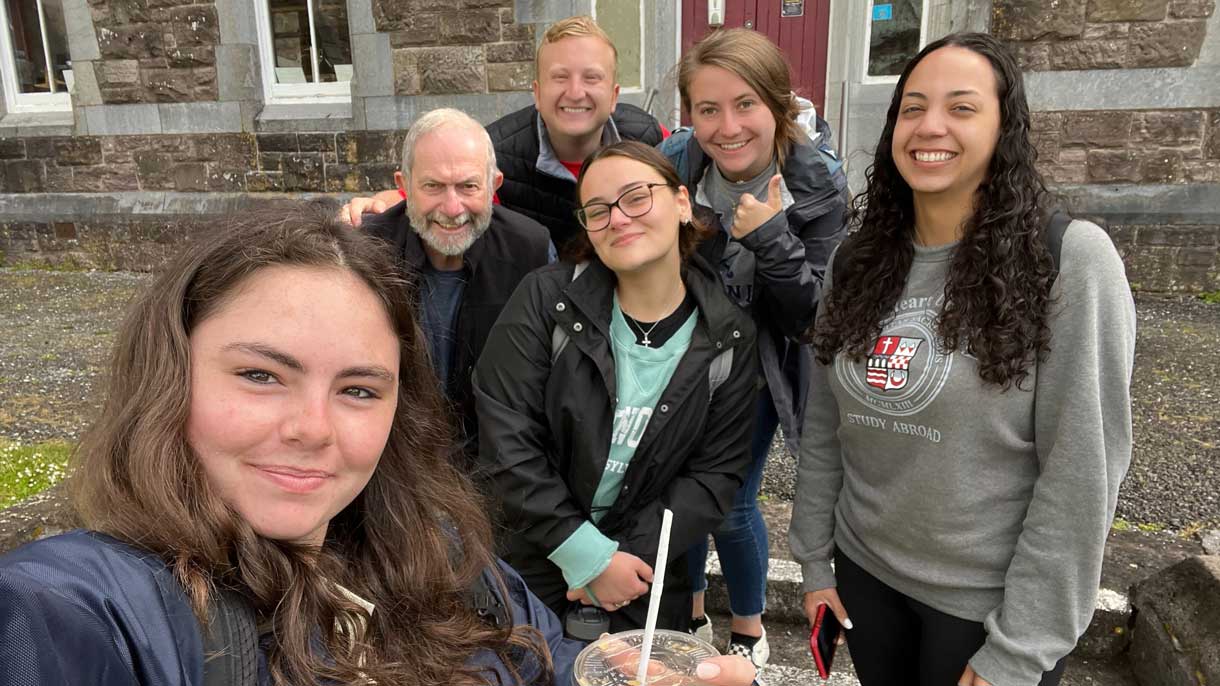
Professor McCloghry and the economics course students pose in Dingle.
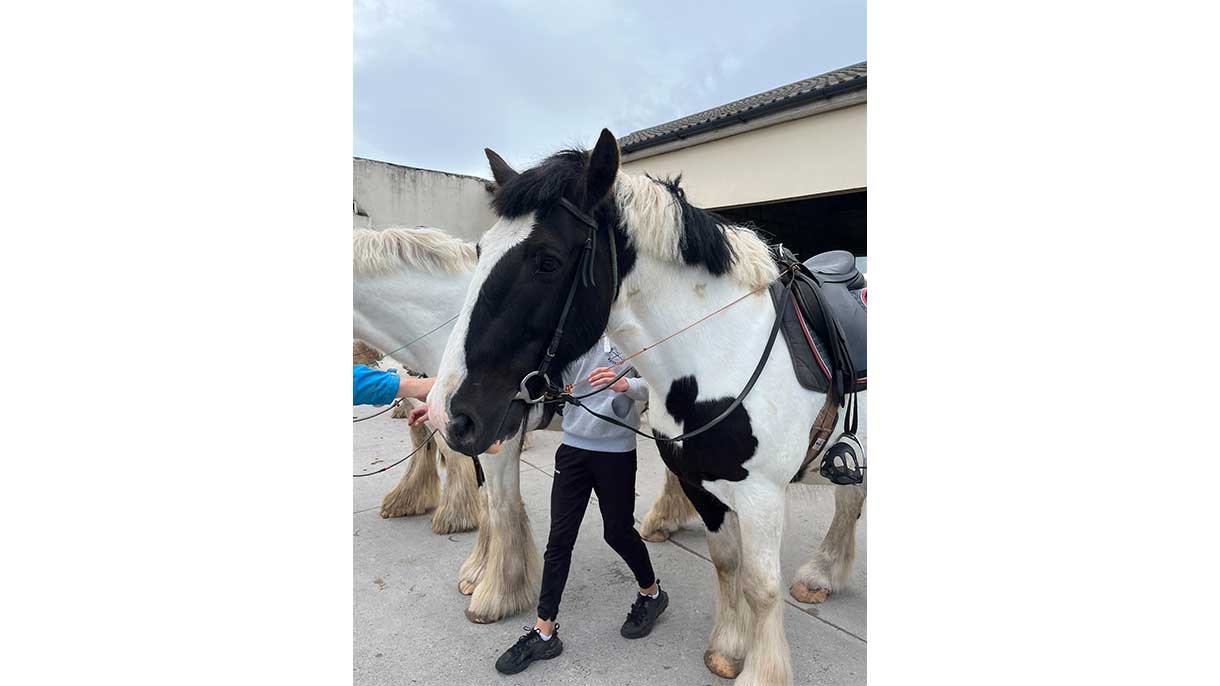
Majestic horses in the streets of Dingle.
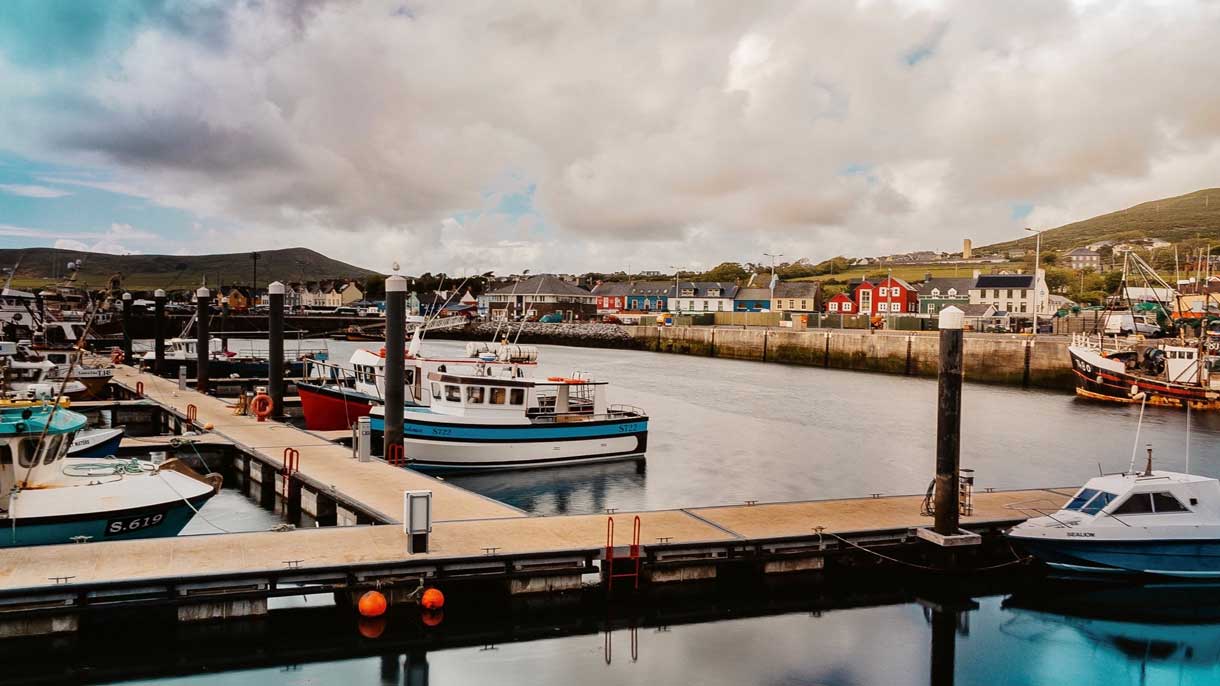
Dingle is a serene coastal village.
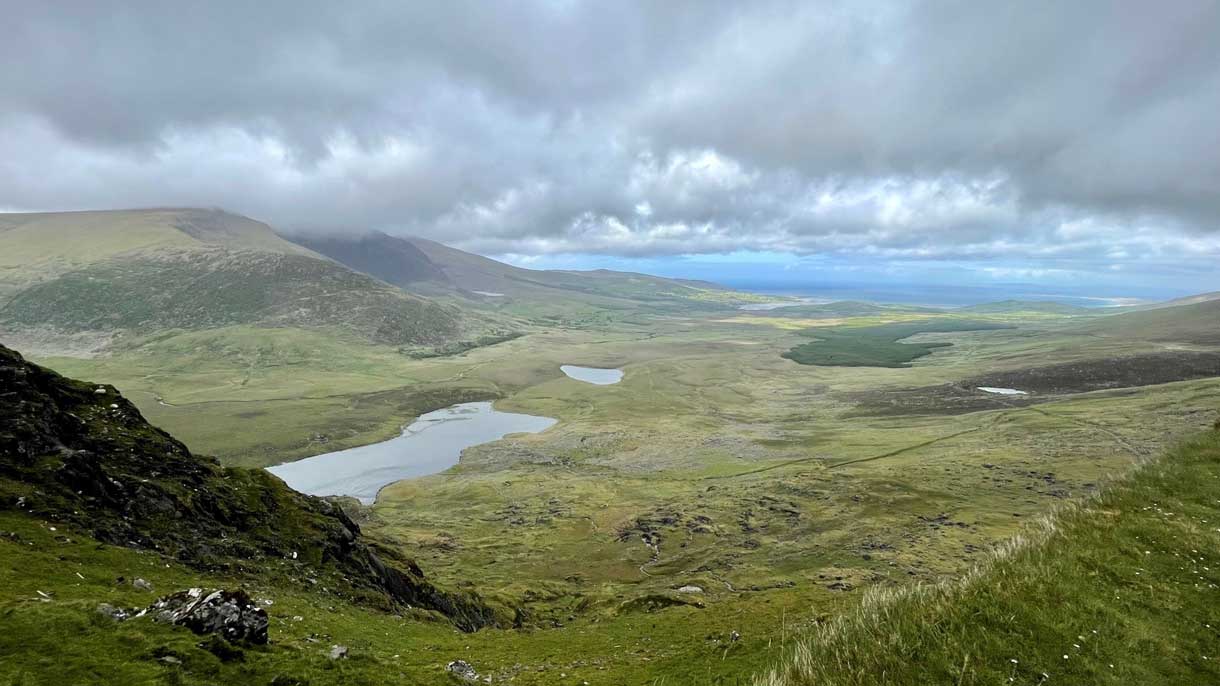
Rolling countryside, from Conor Pass
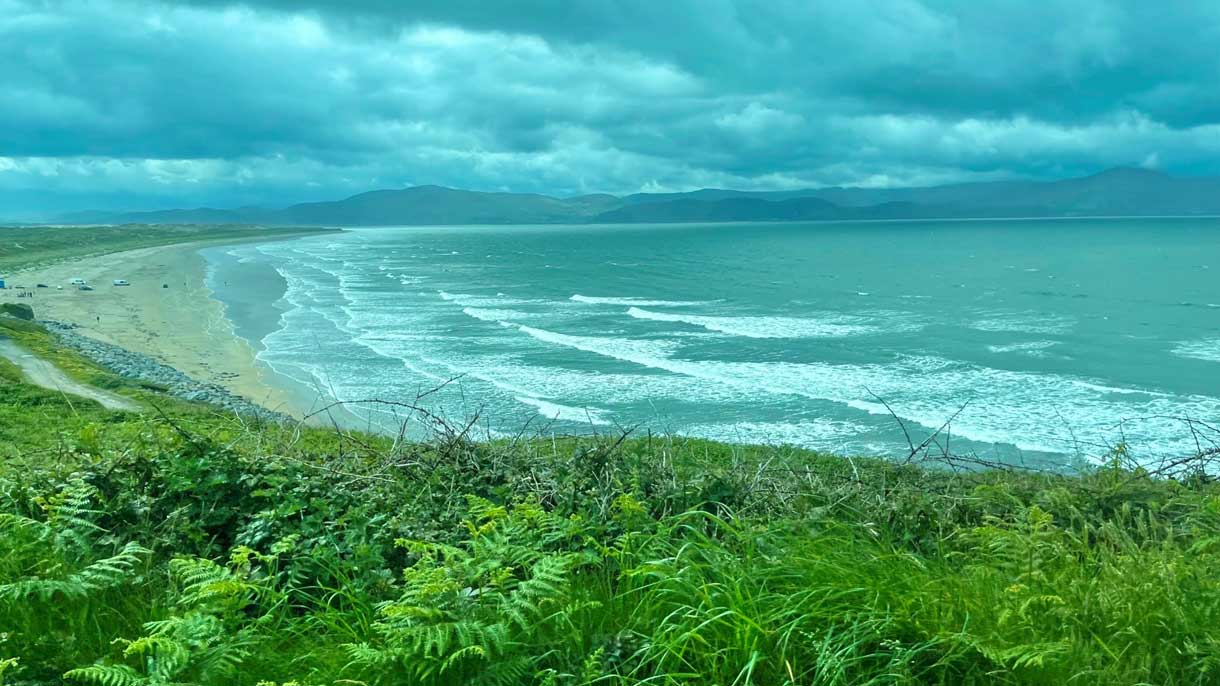
Magnificent sandy beach, Ventry
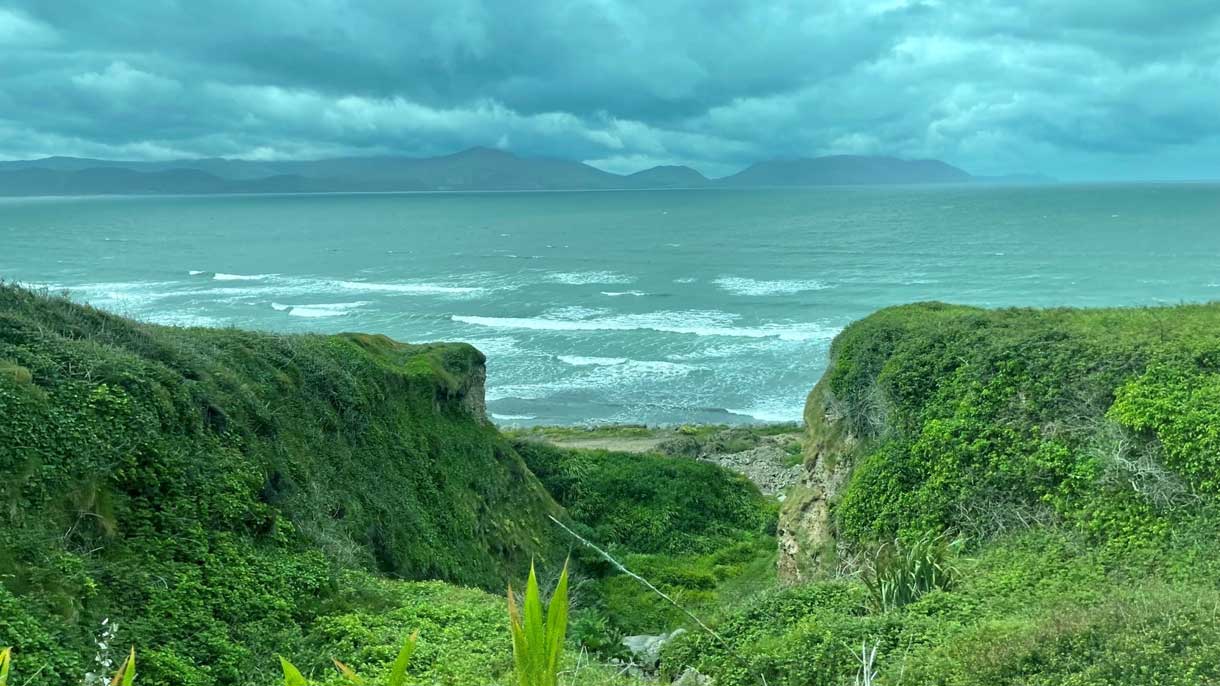
Serene views of the sea in Ireland.
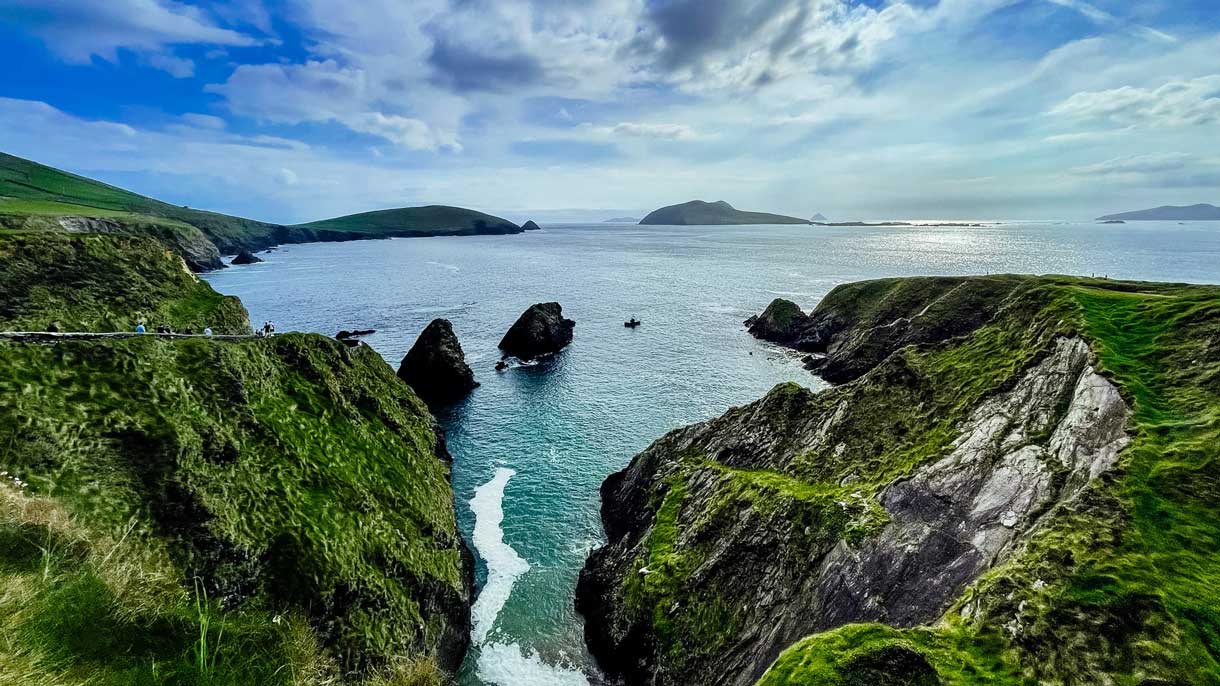
Breathtaking cliffs
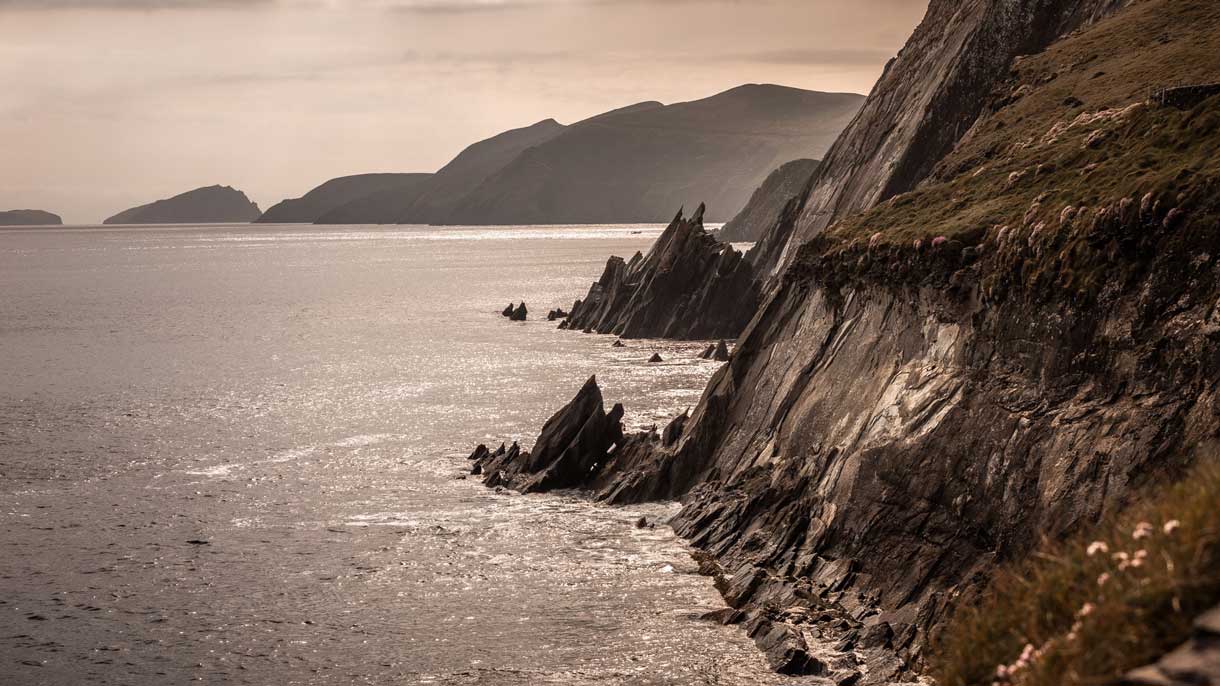
The Dingle peninsula, to Blasket Islands, to the Atlantic Ocean.
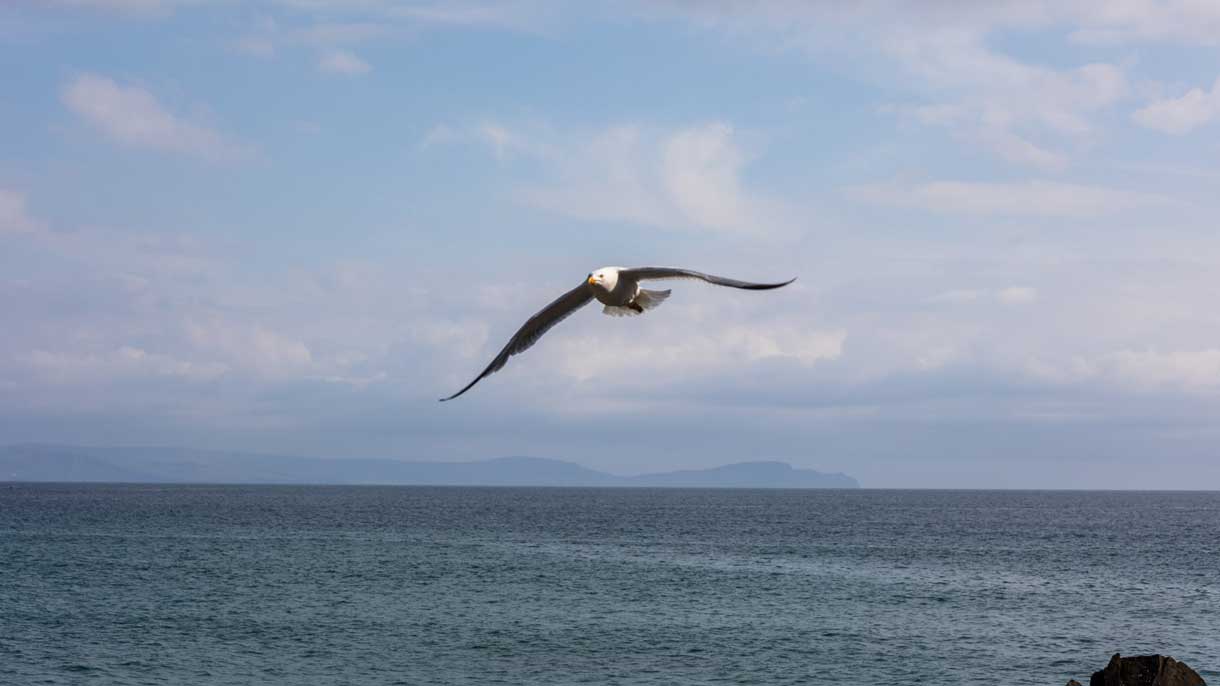
An eagle soars over the water
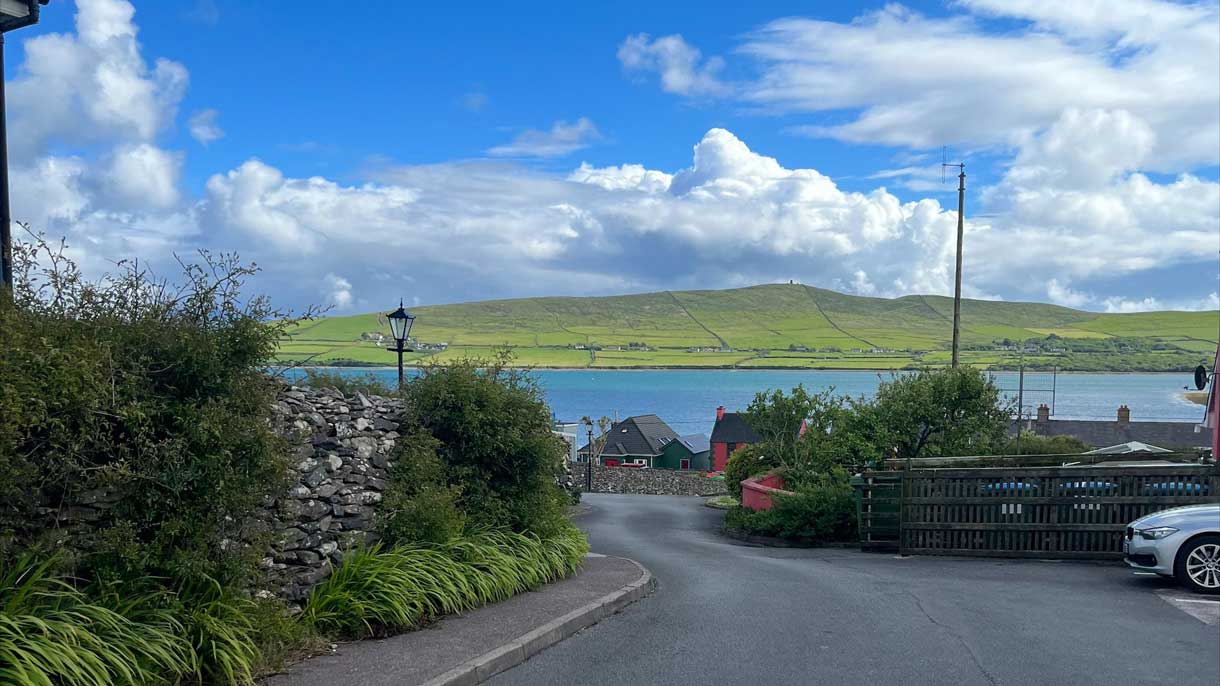
A picturesque destination to study abroad.
